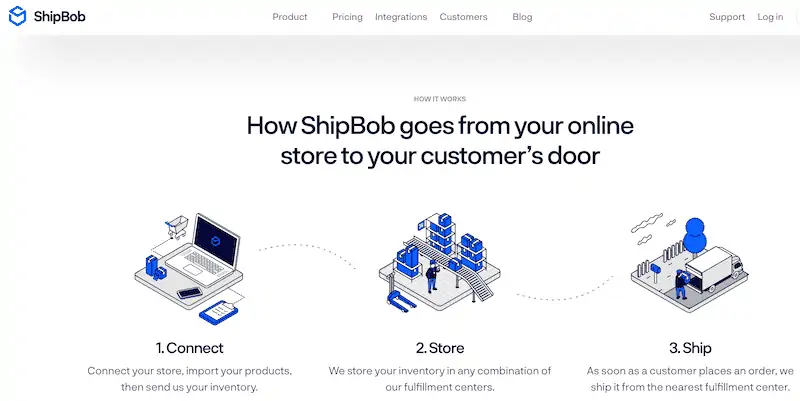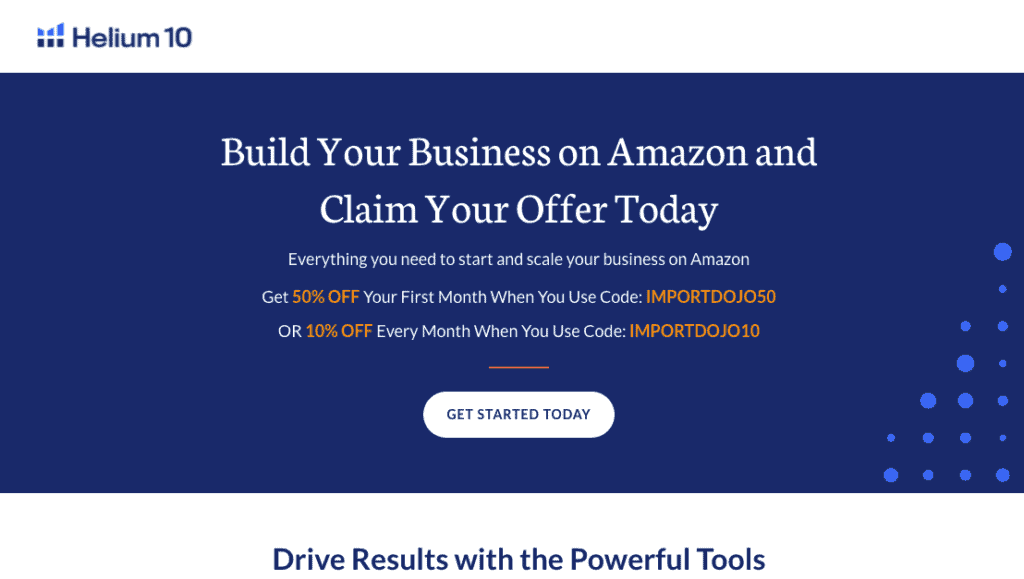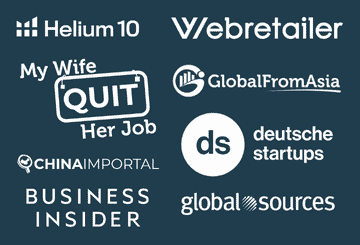If you’re an online seller, you may need an eCommerce Fulfillment company at some point. Whether Amazon’s warehouses are full or if you are shipping via your own eCommerce store, at some point you will want to hire a Third Party Fulfillment company. Recently because of Coronavirus, Amazon has also limited what you can send them (for a fair reason). So you may need a Fulfillment company urgently to fulfil your orders. For that reason I wrote up this blog post on one of the best Fulfillment companies in the space. Namely: Shipbob.
Ideally you’ve raked up sales in the last few months and created more and more turnover. Unfortunately that can also create quite a bit of stress for small and mid-sized online retailers that handle order fulfillment on their own. A spike in sales comes with a spike in logistics requirements. That means inventory management, shipping, returns, exchanges, dealing with freight carriers, and a ton of other headaches.
That begs the big question: Should I go for DIY shipping again this year, or hire a 3PL? This post will help you decide on the right answer for you.
Disclaimer: Some of the products may contain an affiliate link and we may make a commission if you click on it at no additional costs to you.

DIY SHIPPING VS. HIRING A 3PL
Let’s start with some explanations and definitions.
There’s nothing inherently wrong with DIY shipping or self-fulfillment. In this model, the retailer (sometimes even a solopreneur) handles packaging, shipping and reverse logistics by him or herself. That includes everything from stocking inventory and determining shipping rates and methods to choosing packaging, calculating shipping costs and physically getting packages to the carrier with the right address.
(That’s all to say nothing of more complex situations, like restocking returns, processing exchanges, handling angry customers and shipping overseas.)
For some retailers, this model makes a ton of sense. For others, not so much. We’ll get into the differences shortly.
The other side of the coin is outsourcing fulfillment to a third-party logistics company, or 3PL. These companies handle retailers’ logistics and distribution needs semi-autonomously. Goods are stocked in the 3PL’s warehouse (or warehouses). When an order is placed, the retailer’s shopping cart software triggers the 3PL to pick, pack and ship the order. Ideally, the eCommerce seller never needs to touch any part of the distribution, warehousing and shipping cycle.

IS IN-HOUSE LOGISTICS BETTER THAN OUTSOURCED LOGISTICS?
The answer to this question completely depends upon the situation.
DIY shipping offers a number of benefits, though they are primarily realized by companies with relatively small volumes (i.e., less than 1,000 packages shipped per month, or roughly 33 per day).
- Complete Control: Handling all aspects of fulfillment and shipping yourself gives a unique level of autonomy over the supply chain. You can customize the entire process – from order through returns – to suit your exact needs. Of course, this can also be a negative. If you or your team don’t have logistics experience, you could be saddled with a set of tasks far outside your core competency.
- Minimal Costs: If your order volumes are quite low, you might be able to save by handling fulfillment in-house. Scalability is questionable, but if you can easily handle your requirements today and don’t expect a spike in the near-term, DIY shipping might be a better option than outsourcing to a 3PL.
- Personal Touch: If you sell a relatively small amount of a very personal product, like hand-made original goods, DIY shipping is often a good fit. It allows you to place handwritten notes in each shipping box, for instance, or to package each item by hand. This can be useful for sellers on platforms like Etsy.
Outsourcing to a 3PL, meanwhile, offers its own set of value propositions. In most cases, they’re attractive to eCommerce sellers that expect a spike in orders over the holidays, or those that want to scale their businesses rapidly.

BENEFITS OF OUTSOURCING FULFILLMENT
- Scalability: The most obvious benefit of outsourcing eCommerce fulfillment to a third-party logistics firm is scalability. At some point, even a hard-working team is limited by the number of packages they need to send out each day. If you figure that it takes an individual just five minutes to package and address a single item, even 10 orders a day takes about an hour to handle. When things get complicated (e.g., orders with multiple items, exchanges, etc.), that estimate of five minutes is probably very low. You can see how things get out of hand fast. A good 3PL can scale basically infinitely, meaning your sales are never limited by your ability to fulfill them.
- Delivery Speed: Let’s say that you have a full-time resource dedicated to picking, packing and shipping your online orders from a small warehouse in Pennsylvania. That’s great; you can probably handle 100 orders a day or so. Problem is, if all your inventory originates from Pennsylvania, you’re completely at the mercy of the shipping companies. Next-day shipping (or even two-day shipping) is going to be basically impossible for the West Coast unless you pay exorbitant rates for expedited shipping via air. Leading 3PLs like SHIPBOB offer locations in major metro areas across the country, allowing you to stock your goods coast-to-coast and deliver just as fast to Nevada and New York.
- Free Shipping: If your shipping rates and times vary, say goodbye to being able to offer free shipping. And free shipping is table stakes in the era of Amazon. The second you ask a customer to pay half the cost of their order for shipping, you’ve almost certainly lost them. Outsourcing to a nationwide 3PL allows you to realize consistent fulfillment and distribution costs, letting you budget for free shipping. If you have it and your competitors don’t, guess what? You get the order.
- Experience: If you’re an online seller, chances are you’re more into merchandising, marketing and innovation than logistics. Working with a 3PL can make the whole critical aspect of shipping and logistics go away, freeing you up to handle what you do best.
- Total Cost Savings: While self-fulfillment can be cheaper than outsourcing to a 3PL in some cases, there is absolutely a tipping point. Let’s say you’re spending four hours per day picking, packing and shipping orders, and another half-hour dealing with customer service calls. That’s more than 22 hours in a five-day work week. The opportunity cost there alone is significant, to say nothing of whatever you’re paying for physical space to house your inventory.
[thrive_leads id=’51377′]

WHEN SHOULD YOU HIRE A 3PL?
Clearly, there are positives to both sides of the coin. DIY shipping and fulfilment lets you control the process completely, deliver a self-consciously personal experience and avoid paying unnecessary costs if you’re shipping less than 33 packages or so a day. But self-fulfilment doesn’t scale well, and it might require expertise your team doesn’t have.
Conversely, a 3PL allows you to deliver a more upscale customer experience, offer benefits like free shipping and next-day delivery, and focus on your core competencies. But there is a cost to outsourcing fulfilment, and it takes some time.
So when should you hire a 3PL? Outsourced fulfilment makes sense for eCommerce sellers who:
- Ship 1,000 or more packages per month
- Have relatively standard package sizes
- Sell mass-produced or semi-mass-produced goods (i.e., not complete one-offs)
- Need to compete with Amazon but realize higher profit margins
- Plan to grow their operations in the next 12-24 months
- Compete with online retailers who offer fast, free shipping
- When Amazon doesn’t accept your shipments due to seasonal highs (Xmas) or events such as Coronavirus.
- Deal with returns and exchanges
- Want to ship internationally
By contrast, DIY shipping is likely a fit for online retailers who:
- Plan to sell and ship less than a maximum of 1,000 orders per month
- Rarely see complex or multi-item orders
- Have in-house logistics expertise
- Rarely deal with returns and exchanges
- Do not expect to see a surge in orders over the holiday season

DIY SHIPPING VS. HIRING A 3PL: THE BOTTOM LINE
For eCommerce sellers, there are pros and cons to both DIY shipping and hiring a 3PL. That said, with the holiday season approaching, it really comes down to one thing. Will you be able to keep up with the rush? If you’re doing it yourself, will you be able to get your customers their orders faster and cheaper than the competition? And even if you can, do you really want to?
If you’re staying small this year, DIY is probably a great fit for your needs. But if things are going to get hectic, it’s probably worth calling an experienced third-party logistics provider. You can get a fulfillment quote from SHIPBOB within 24 hours for services that include:
- Nationwide warehousing
- 100% order accuracy
- 1-2 day ground shipping to 99% of the U.S.
- Seamless integration with your website
- Responsive client support


